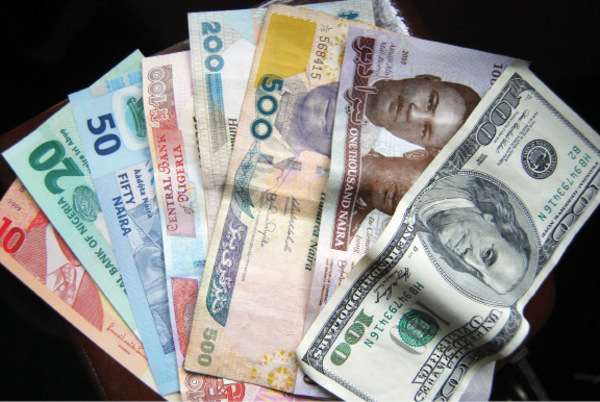Naira Exchange Rate Rebounds to Strongest Levels in 2 Months
The Naira exchange rate appreciated to the strongest in more than two months after the central bank sold dollars to lenders.
The naira appreciated 0.4 percent to 159.45 per dollar as of 2.20 p.m. in Lagos, the commercial capital, the strongest since Nov. 22, according to data compiled by Bloomberg. Nigeria sold $450 million at a foreign-currency auction today, the highest since Oct. 12 sales. The marginal rate, which is also used as the prevailing exchange rate, strengthened 0.1 percent to 156.50 naira, from 156.70 naira at the previous sale on Feb. 1, the Abuja-based Central Bank of Nigeria said in an e-mailed statement.
The central bank intervention has reduced the pressure on dollar demand, helping the naira to appreciate further, Babatunde Obaniyi, head of market risk at Lagos-based Greenwich Trust Group Ltd., said by phone today.
“We have seen a moderation in the demand for foreign exchange perhaps especially from the petroleum sector,” central bank deputy Governor Tunde Lemo told a public hearing of a House of Representatives committee investigating fuel subsidy discrepancies yesterday in Abuja, the capital.
The foreign-exchange reserves of Africa’s most populous nation increased 5.5 percent this year to $34.7 billion as of Feb. 2, according to the central bank. Nigeria’s central bank offers foreign currency to lenders at twice-weekly auctions and also sells dollars directly to banks through theinterbank market by dipping into reserves, as it tries to keep the exchange rate around a midpoint of 155 naira per dollar and stabilize prices.
Exchange Rate
“We expect to see appreciation of the naira as the central bank continues its intervention on the back of the boost in foreign-exchange reserves,” analysts at Lagos-based Cowry Asset Management Ltd., said in an e-mailed note to clients today.
Nigeria would like to keep the exchange rate stable while building up reserves, Central Bank Governor, Lamido Sanusi said Jan. 31.
The regulator kept its benchmark interest rate unchanged at a record high for a second consecutive meeting on Jan. 31 to curb inflation after the government partially removed fuel subsidies, boosting gasoline costs.








